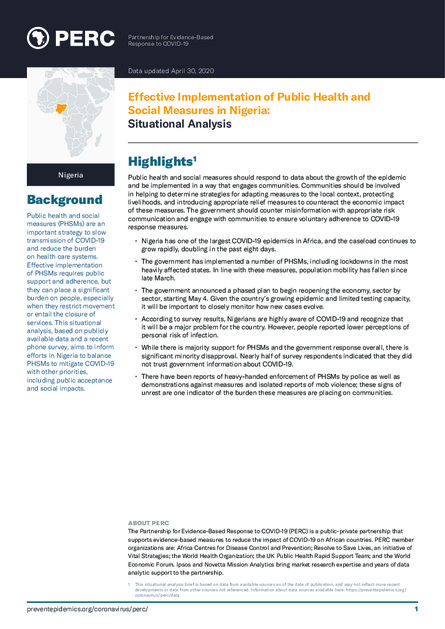
Public health and social measures should respond to data about the growth of the epidemic and be implemented in a way that engages communities. Communities should be involved in helping to determine strategies for adapting measures to the local context, protecting livelihoods, and introducing appropriate relief measures to counteract the economic impact of these measures. The government should counter misinformation with appropriate risk communication and engage with communities to ensure voluntary adherence to COVID-19 response measures.
• Nigeria has one of the largest COVID-19 epidemics in Africa, and the caseload continues to grow rapidly, doubling in the past eight days. • The government has implemented a number of PHSMs, including lockdowns in the most heavily affected states. In line with these measures, population mobility has fallen since late March. • The government announced a phased plan to begin reopening the economy, sector by sector, starting May 4. Given the country’s growing epidemic and limited testing capacity, it will be important to closely monitor how new cases evolve. • According to survey results, Nigerians are highly aware of COVID-19 and recognize that it will be a major problem for the country. However, people reported lower perceptions of personal risk of infection. • While there is majority support for PHSMs and the government response overall, there is significant minority disapproval. Nearly half of survey respondents indicated that they did not trust government information about COVID-19. • There have been reports of heavy-handed enforcement of PHSMs by police as well as demonstrations against measures and isolated reports of mob violence; these signs of unrest are one indicator of the burden these measures are placing on communities.